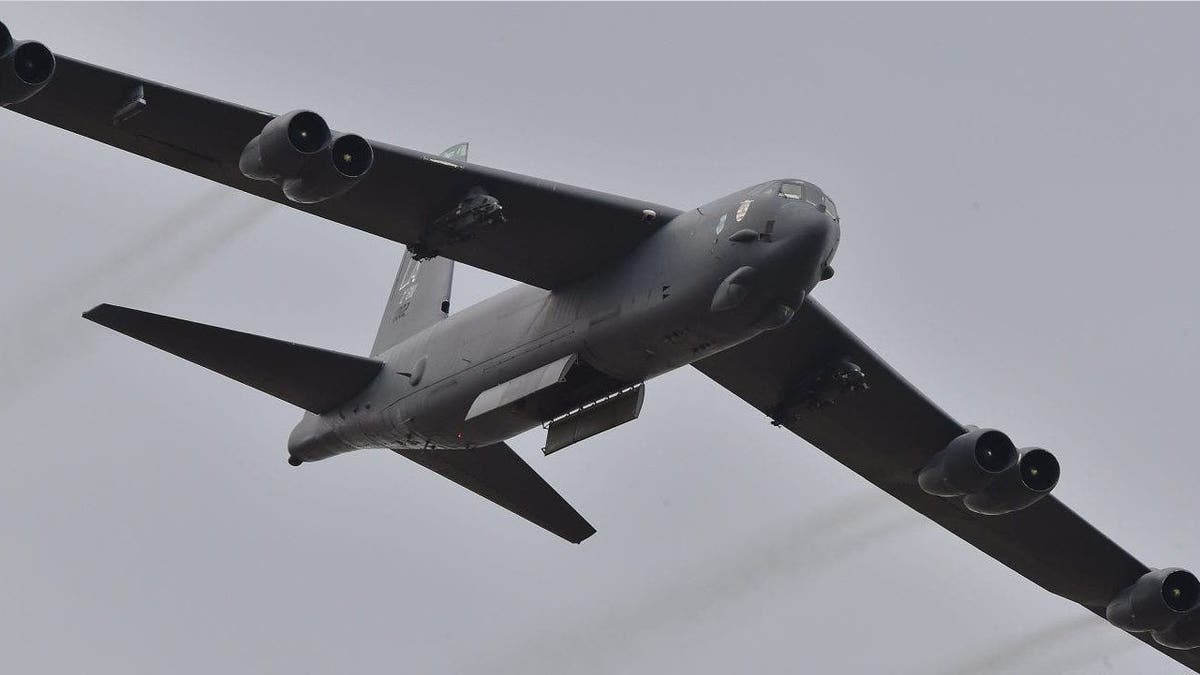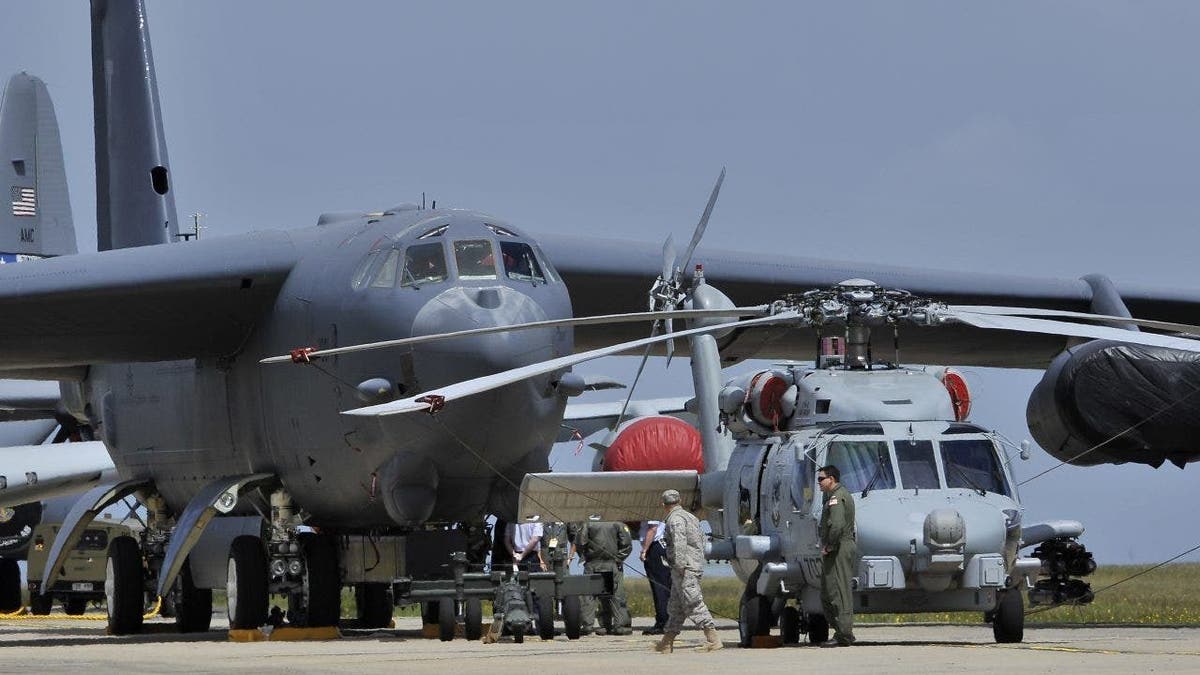China vows to beef up military as US defense dwindles
The 'Outnumbered' panel breaks down China's vow to enhance its military as the U.S. struggles to meet recruiting goals.
China this week said U.S. plans to send B-52 bombers to Australia could "trigger an arms race" as the U.S. looks to beef up its regional security resources.
Royal Australian Air Force Base (RAAF) Tindal has long been home to U.S. B-52 bombers, but China’s foreign ministry took issue with U.S. plans to send up to six nuclear-capable B-52 bombers to the base in northern Australia, according to reports Monday.
Chinese Foreign Ministry spokesman Zhao Lijian said the U.S. plans to increase its security alliance with Sydney "escalates regional tensions" and "gravely undermines regional peace and stability."

A U.S. Air Force B-52 bomber performs during the Australian International Airshow at the Avalon Airfield near Lara, southwest of Melbourne, Feb. 27, 2015. (Paul Crock/AFP via Getty Images)
PENTAGON DEFENDS CUTTING NUCLEAR MISSILE PROGRAM IN NATIONAL DEFENSE STRATEGY AMID RUSSIAN TENSION
"China urges parties concerned to abandon the outdated Cold War zero-sum mentality and narrow geopolitical mindset and do more things that are good for regional peace and stability and mutual trust among all parties," Lijian added.
But Defense Department spokesman Lt. Col. Martin Meiners said U.S. plans to send bombers and an array of aircraft to Australia for joint drills was common practice in the long-standing alliance and a "cornerstone of U.S. foreign and security policy."
"Force posture cooperation with Australia has been a key feature of our alliance for decades," he told Fox News. "A wide range of U.S. military aircraft, including B-52s and other bombers, have visited Australia to participate in joint exercises for years and will continue to do so."
The announced decision to send B-52 bombers to its Aussie ally comes just one week after the U.S. listed China as its No. 1 security threat despite the war in Ukraine and active nuclear threats from Moscow.

U.S. paratroopers from the 4th Infantry Brigade Combat Team (Airborne), 25th Infantry Division, descend to the drop zone after making a jump from a C-17 Globemaster as part of exercise Talisman Sabre 21 July 28, 2021, in Charters Towers, Australia. (Ian Hitchcock/Getty Images)
Secretary of Defense Lloyd Austin described China as "the only competitor out there with both the intent to reshape the international order and, increasingly, the power to do so" moments after the National Defense Strategy (NDS) was declassified by the Department of Defense.
"The NDS bluntly describes Russia as an acute threat. And we chose the word ‘acute’ carefully," Austin added. "Unlike China, Russia can't systemically challenge the United States over the long term."
U.S.-China relations have become increasingly strained over the last several years, particularly as Beijing continues its aggressive posture in the region.

A U.S Air Force Seahawk Helicopter stands in front of a B-52 bomber on a runway on the opening day of the Australian International Airshow and Aerospace and Defence Expo in Melbourne March 1, 2011. (Paul Crock/AFP via Getty Images)
CLICK HERE TO GET THE FOX NEWS APP
Meiners said the U.S. has been committed to its partnership with not only Australia but other Western and regional allies in maintaining a security presence through "enhanced air cooperation through the rotational deployment of U.S. aircraft of all types."
B-52 bombers can carry the largest array of weapons in U.S. inventory, including cluster bombs, gravity bombs and precision-guided missiles.








































